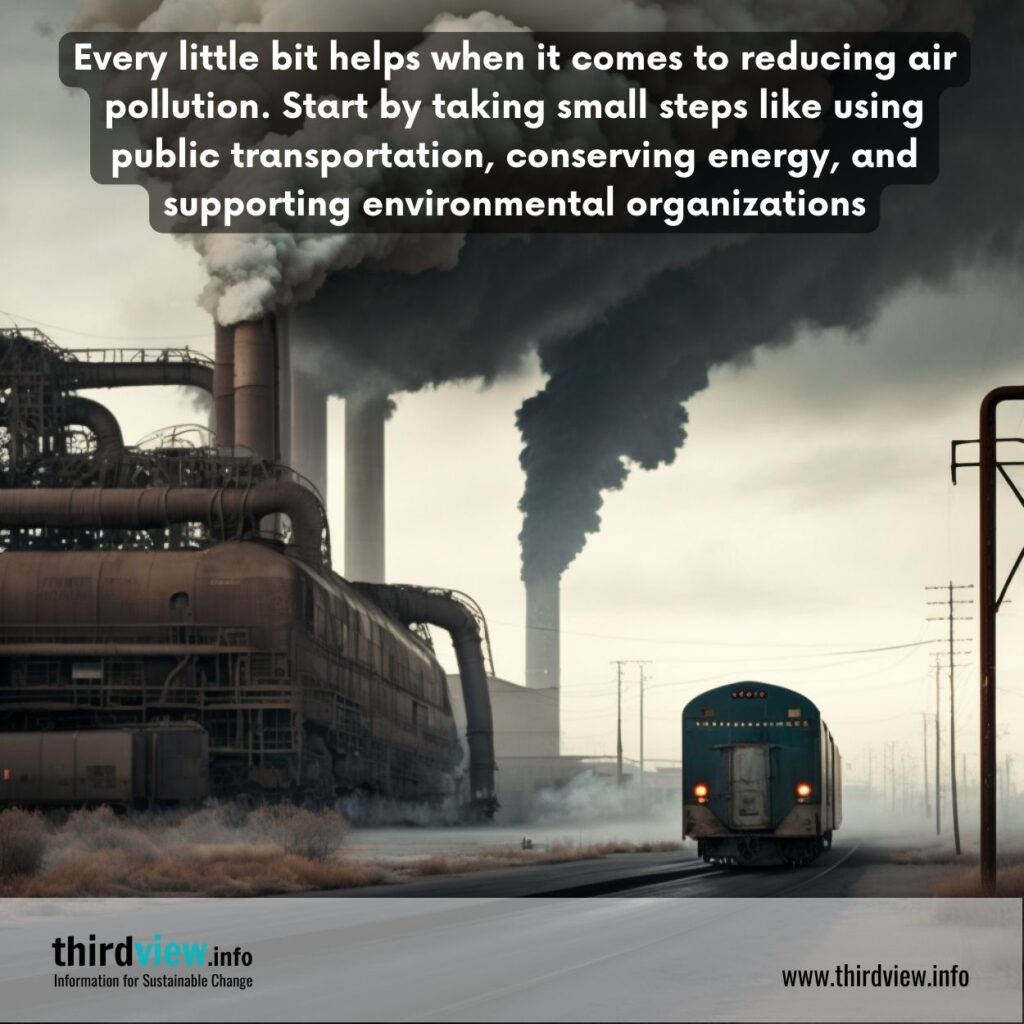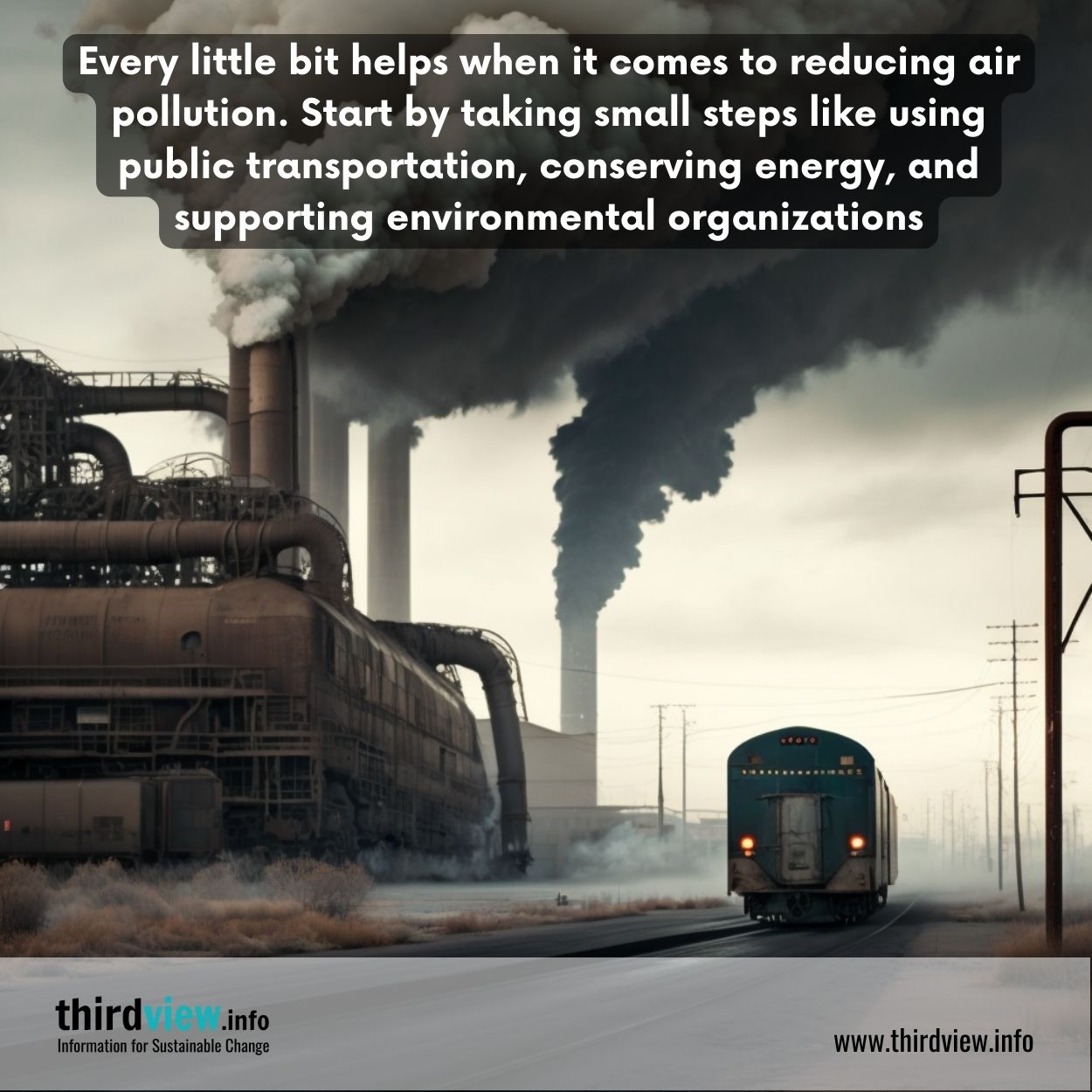Air pollution is a serious issue that affects the health and well-being of all people, animals, and plants on Earth. In recent years, air pollution has become an even more pressing concern as climate change continues to worsen. Fortunately, there are steps that every person can take to reduce air pollution and help protect our planet.
The Impact of Air Pollution
Air pollution is any substance in the atmosphere that harms humans or other living organisms. Common pollutants include particulate matter, ground-level ozone, carbon monoxide, nitrogen dioxide, sulphur dioxide, and lead. These pollutants come from both natural sources like wildfires and volcanic activity as well as human sources such as car exhaust fumes and industrial waste. The effects of air pollution range from minor ailments like headaches and nausea to more severe problems like respiratory diseases or even cancer. It can also damage ecosystems by killing off plant life or making it difficult for animals to find food or shelter.
Ways to Reduce Air Pollution
There are many ways to reduce air pollution both on an individual level and on a larger scale. On an individual level, you can start by reducing your own emissions by driving less or carpooling when possible, using public transportation instead of driving your own vehicle, disposing of hazardous materials properly rather than burning them in open fires or landfills, turning off lights when not in use in order to conserve energy, and using eco-friendly products such as rechargeable batteries or low-VOC paints whenever possible. Additionally, you can support organizations that are working hard to reduce air pollution such as Greenpeace or the Sierra Club.
On a larger scale, governments must take action by passing laws that regulate emissions from factories and vehicles; promote green technology; invest in renewable energy resources; encourage citizens to conserve energy; implement stricter regulations on hazardous waste disposal; ban certain pollutants from being released into the environment; create incentives for businesses that adopt green practices; monitor air quality levels regularly; increase public awareness about the dangers of air pollution; fund research into alternative fuels and clean technology; install scrubbers on smokestacks in order to limit emissions; enforce existing environmental laws more strictly; and incentivize companies to develop green products with tax breaks or grants.
Reducing air pollution is essential if we want to keep our planet safe for future generations. While it may seem overwhelming at first, there are several simple steps that everyone can take in order to make a difference. From changing our driving habits and conserving energy at home to supporting organizations dedicated to protecting the environment and encouraging our governments to pass stronger laws regulating emissions – every little bit helps. Working together towards this common goal will be key if we are going to restore healthy balance back into our planet’s atmosphere once again.


